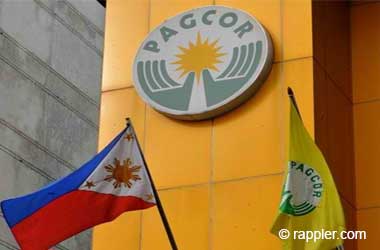PAGCOR Stops Accepting iGaming License Applications After Pressure

The Philippine Amusement and Gaming Corporation (PAGCOR) which is the main gaming regulator in the Philippines has decided to stop accepting online gaming license applications as the gambling watchdog seeks to address concerns that hound already existing online casinos.
In a press conference earlier this week, PAGCOR chief Andrea Domingo confirmed that the Philippines has discontinued applications for new Philippine Offshore Gaming Operators (POGO) from August.
Domingo said they will not reopen applications until PAGCOR has sufficiently addressed and reviewed all concerns on the growing offshore gambling industry. There are currently 58 licensed POGOs in the Philippines, with three more awaiting the approval of their licenses.
CNN Philippines
POGOs Not Paying Proper Taxes
According to the Philippine government some 138,000 workers – predominantly Chinese nationals are currently employed by POGOs in the country. However, authorities estimate the deluge of foreign workers could actually be more, given the presence of unlicensed operators as well. POGO operations in the Philippines still largely cater to remote Chinese gamblers, requiring Mandarin proficiency among its workers.
Philippine legislators have aired concerns on the tax collection and revenue monitoring of POGOs, which largely handle overseas transactions.
According to the regulator, PAGCOR raked in around PHP2.7 billion (US$51.5 million) in regulatory fees from POGOs in only the first six months of 2019, making up around 7 percent of gross income of PHP36.6 billion.
Philippines Joins Cambodia
Illicit online gambling activities have blossomed in the Southeast Asian region as multiple operators have set up shop to target Chinese gamblers. Beijing has called for better collaboration between S.E Asian countries to prevent these illegal gambling operations from continuing.
Cambodia’s government had earlier decided to stop issuing gaming licenses stoked by fears of foreign criminals using the industry as a front for their fraud and illegitimate businesses. Cambodia has a thriving gambling industry and the decision to crackdown on online gambling is quite possibly due to the pressure asserted by Beijing.
The Philippines has decided to follow in Cambodia’s footsteps in crackdown on its online gambling industry as well. This move could be bad for the online gambling market in the Philippines as gaming analysts say that the Philippines could have profited from Cambodia’s shutdown on iGaming operators as they would have likely applied for an iGaming license to operate in the Philippines.
Vietnam and Thailand have so far not taken any major steps against iGaming but they will also be feeling the pressure imposed by Beijing.
David WalkerAuthor
David is our resident 'down under' contributor, letting us know what is going on in the southern hemisphere, he is also keen blackjack player





